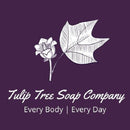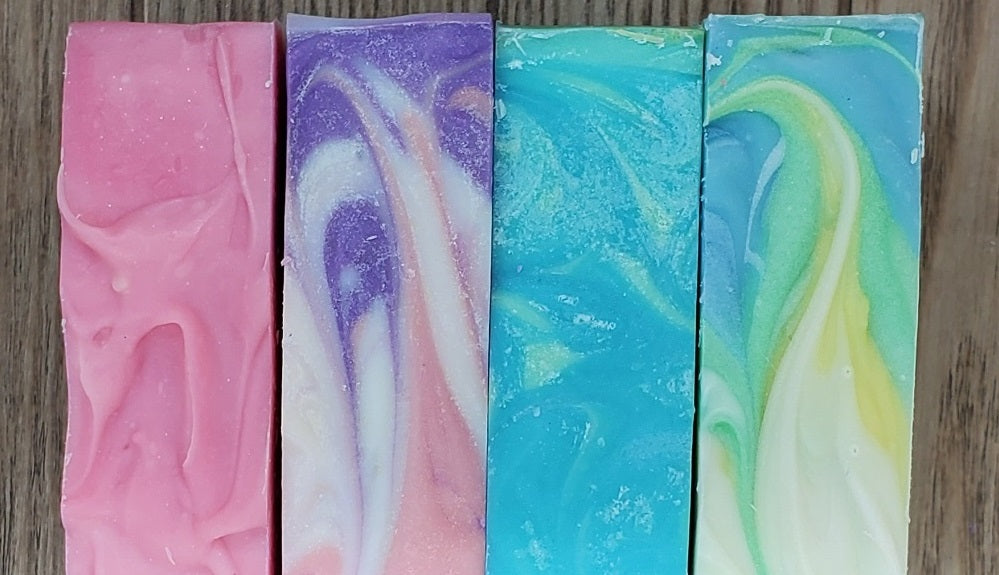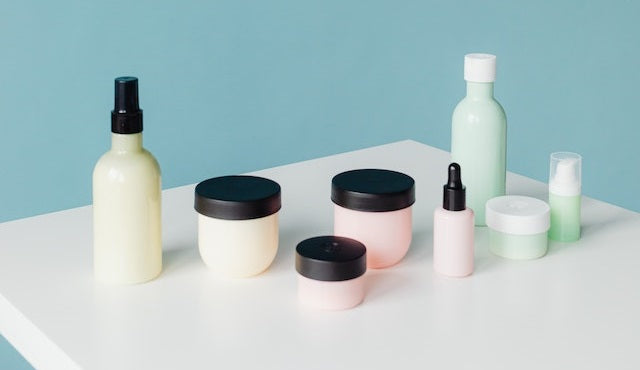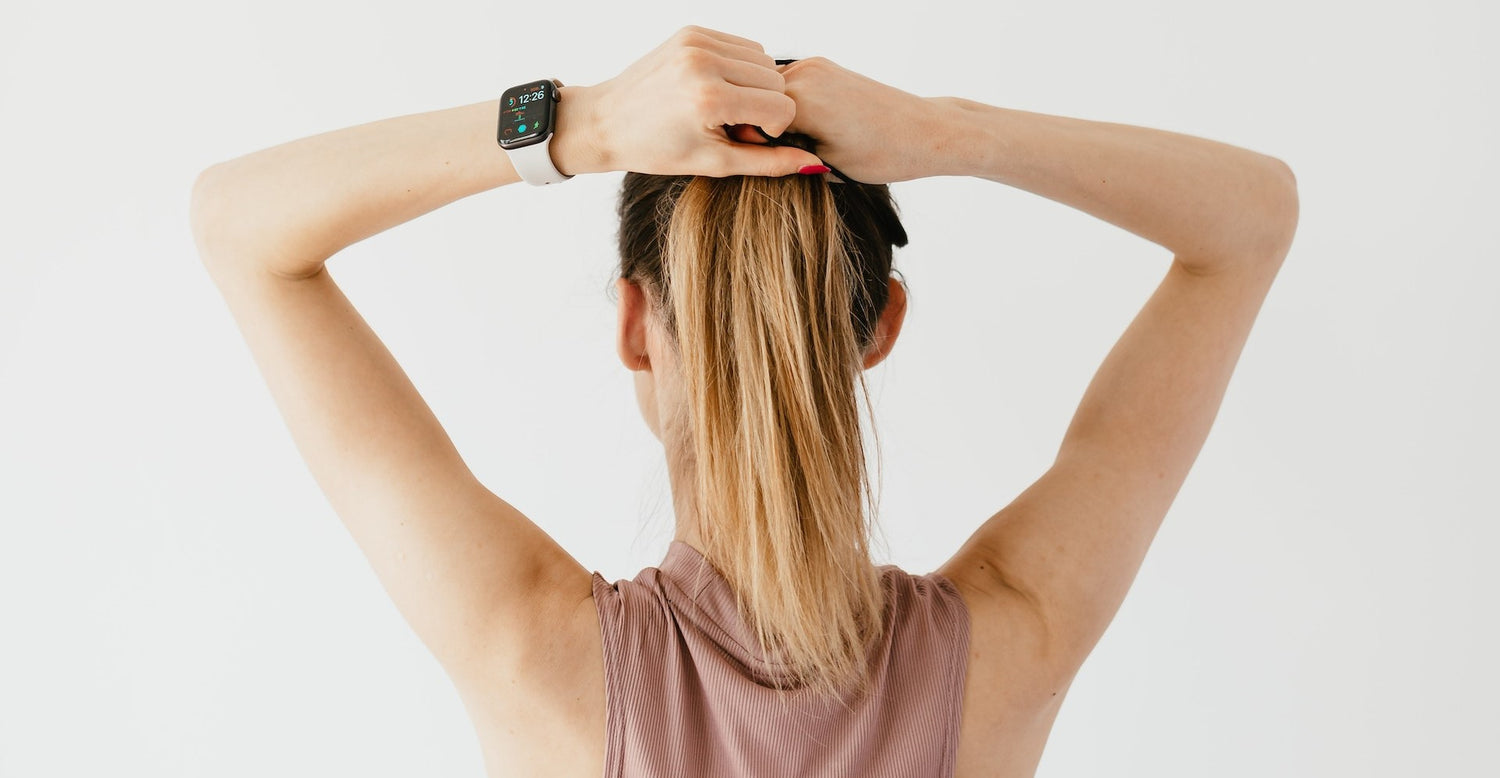If you're familiar with Tulip Tree Soap Company, you know one of my missions is to use ingredients that are safe, gentle, and as accessible for as many people as possible.
(If you're not familiar with TTSC, welcome! I'm glad you're here!)
In some cases, it's pretty easy to know what's good to use and what's not but there's also a lot of gray area. One of those gray areas is sulfates - I'm asked a lot "Are sulfates bad?" and it's not really a yes or no answer. While I don't use them, a lot of companies do, including some pretty big names.
So, let's dig a little deeper into why I don't use them and whether you should avoid sulfates in your hair and skincare products.
What Are Sulfates?
First, what am I talking about when I say sulfates? If you've ever read the back of a shampoo bottle, body wash, or looked up ingredients to your dish detergent, you've probably seen at least one of these ingredients:
- Sodium lauryl sulfate (SLS)
- Sodium laureth sulfate (SLeS)
- Sodium coco sulfate (SCS)
- Ammonium lauryl sulfate (ALS)
They're all produced in the same relative way - SLS is created when lauryl alcohol (a fatty alcohol derived from coconut or palm) is treated with a form of sulfuric acid. The result is hydrogen lauryl sulfate, which is NOT safe, so it's neutralized by adding sodium hydroxide or sodium carbonate. SLeS and SCS are produced in a similar manner, though different fatty alcohols and sometimes petroleum products are used.
The end result is a powerful cleansing agent (called a surfactant) that creates a lot of lather and removes dirt, oil, grease, and other residues. One end of the molecule binds to oil while the other end binds to water, so it lifts and strips any dirt or oils from hair, skin, carpet fibers, etc. They also decrease surface tension in water, so water spreads more easily. This can be good such as when washing a car, or it can be bad when you're washing your hair because it allows water to permeate the cortex of the hair and cause damage.
Where Are Sulfates Found?
You'll pretty much find sulfates in personal care items, cleaning items, and even food. Most commonly, this includes anything that produces lather:
- Shampoo
- Body wash
- Facial washes
- Toothpaste
- Dish detergent
- Laundry detergent
- Machinery degreasers
- Industrial cleaners
It is also a food additive, used as a thickener and emulsifier. It makes dried egg fluffier and gives marshmallows a bit more bounce, and you may find it in fruit drinks as it helps citric acids mix with other liquids.
Are Sulfates Safe (Or Avoided at All Costs!)
So here's the $64,000 question - are sulfates safe to use? Yes, generally. Are they good to use? Not so much.
The good news if you've been using them, don't panic. SLS and other sulfates aren't carcinogenic, they don't cause hair loss, and they're not corrosive to the skin despite some claims that went around in the 1990s and early 2000s.
Buuuut...
They are REALLY strong cleansers, and they can strip too much of your skin and hair's natural oils. This leads to problems like:
- Skin irritations, itching, and hives
- Acne as your skin produces more oil to make up for what's removed;
- Flaky, itchy scalp;
- Dry, frizzy hair,
- Short lived hair color
- Irritated gums and canker sores (sulfates in toothpaste)
Also, if you have eczema, dermatitis, or rosacea, sulfates can exacerbate the problem and cause unpleasant flareups.
Because part of my mission is making Tulip Tree Soap Company products better and more accessible to all people, hair types and skin types (It's the core of our slogan "Every body | Every day"), sulfates don't meet my standards, so I don't use them.
Switching Out SLS and Other Sulfates
So, you're ready to give up SLS, SLeS, and all the sulfates in your skin and hair - what should you look for instead?
While most cleansers will still remove dirt and oil, these are much more mild and gentle:
- Sodium cocoyl isethionate (also called SCI or "baby foam") - derived from coconut oil and isoethionic acid
- Sodium lauryl sulfoacetate (SLSa) - sounds scary, but its large molecular size means it won't penetrate the skin, strip oils, or cause irritation.
- Disodium laureth sulfosuccinate - similar to SLSa in that large molecules prevent irritation, but a slightly different chemical makeup.
- Cocamidopropyl betaine - can be irritating in high amounts, but has emollient properties when used in low volumes
- Lauryl glucoside/decyl glucoside/coco glucoside - very mild liquid surfactant made from fatty acids derived from coconut or palm
These are just a few options to look for, though most options are clearly labeled sulfate free. Also, for your skin, you may find handmade soap is the best option to get you clean without any drying or irritation.
Try Our Sulfate Free Shampoo Bars
When it comes to sulfates, they're clearly not the BIG SCARY INGREDIENTS they've been painted to be, but, they're also not the best thing for your hair and skin. That's why we don't use them - we know there's better stuff out there and that's what we want to use. So if you're ready to switch things up a bit, Tulip Tree Soap Company can help.
To keep your hair clean and healthy, try our sulfate-free shampoo bars and body wash bars, as well as our handmade soap. Made with gentle, mild ingredients, they're specifically formulated to get your hair clean without stripping it of all the good oils you need. Your hair and scalp will feel clean and healthy, and they're safe for color-treated hair, too!





1 comment
Your soaps are so pretty! I do have a question though, I was not able to find a complete ingredient list. I tend to be sensitive to so many things so I’m curious.
Thank you for your help and brava to you for doing something you love!
Thanks,
Angie.